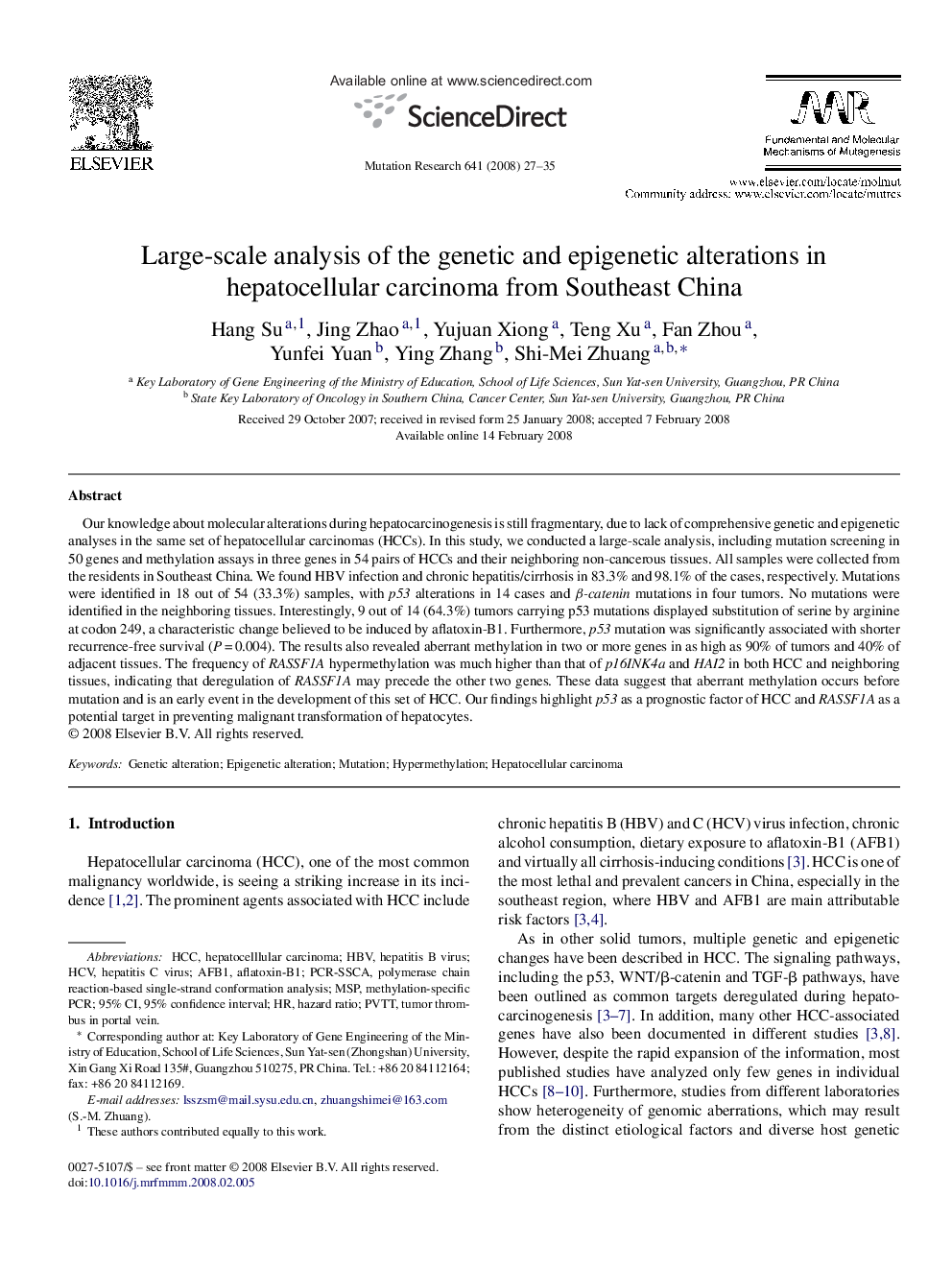| Article ID | Journal | Published Year | Pages | File Type |
|---|---|---|---|---|
| 2147179 | Mutation Research/Fundamental and Molecular Mechanisms of Mutagenesis | 2008 | 9 Pages |
Our knowledge about molecular alterations during hepatocarcinogenesis is still fragmentary, due to lack of comprehensive genetic and epigenetic analyses in the same set of hepatocellular carcinomas (HCCs). In this study, we conducted a large-scale analysis, including mutation screening in 50 genes and methylation assays in three genes in 54 pairs of HCCs and their neighboring non-cancerous tissues. All samples were collected from the residents in Southeast China. We found HBV infection and chronic hepatitis/cirrhosis in 83.3% and 98.1% of the cases, respectively. Mutations were identified in 18 out of 54 (33.3%) samples, with p53 alterations in 14 cases and β-catenin mutations in four tumors. No mutations were identified in the neighboring tissues. Interestingly, 9 out of 14 (64.3%) tumors carrying p53 mutations displayed substitution of serine by arginine at codon 249, a characteristic change believed to be induced by aflatoxin-B1. Furthermore, p53 mutation was significantly associated with shorter recurrence-free survival (P = 0.004). The results also revealed aberrant methylation in two or more genes in as high as 90% of tumors and 40% of adjacent tissues. The frequency of RASSF1A hypermethylation was much higher than that of p16INK4a and HAI2 in both HCC and neighboring tissues, indicating that deregulation of RASSF1A may precede the other two genes. These data suggest that aberrant methylation occurs before mutation and is an early event in the development of this set of HCC. Our findings highlight p53 as a prognostic factor of HCC and RASSF1A as a potential target in preventing malignant transformation of hepatocytes.
